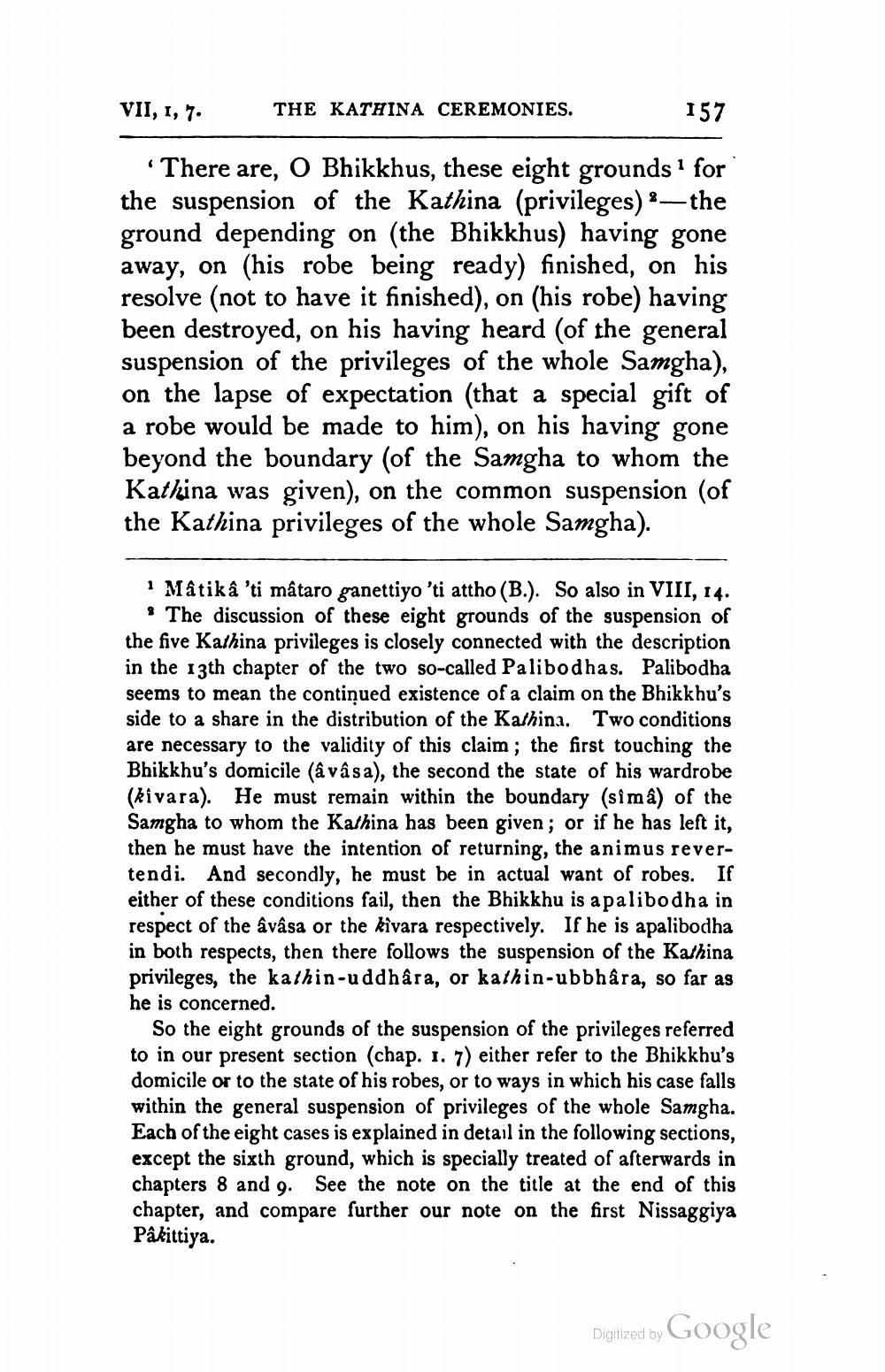________________
VII, 1, 7.
THE KATHINA CEREMONIES.
157
There are, O Bhikkhus, these eight grounds 1 for the suspension of the Kathina (privileges) —the ground depending on the Bhikkhus) having gone away, on (his robe being ready) finished, on his resolve (not to have it finished), on (his robe) having been destroyed, on his having heard (of the general suspension of the privileges of the whole Samgha), on the lapse of expectation (that a special gift of a robe would be made to him), on his having gone beyond the boundary (of the Samgha to whom the Kathina was given), on the common suspension (of the Kathina privileges of the whole Samgha).
Mâtik â 'ti mâtaro ganettiyo 'ti attho (B.). So also in VIII, 14. . The discussion of these eight grounds of the suspension of the five Kathina privileges is closely connected with the description in the 13th chapter of the two so-called Palibodhas. Palibodha seems to mean the continued existence of a claim on the Bhikkhu's side to a share in the distribution of the Kathina. Two conditions are necessary to the validity of this claim; the first touching the Bhikkhu's domicile (a vâsa), the second the state of his wardrobe (kivara). He must remain within the boundary (sima) of the Samgha to whom the Kathina has been given; or if he has left it, then he must have the intention of returning, the animus revertendi. And secondly, he must be in actual want of robes. If either of these conditions fail, then the Bhikkhu is a palibodha in respect of the avâsa or the kivara respectively. If he is apalibodha in both respects, then there follows the suspension of the Kathina privileges, the kathin-uddhâra, or kathin-ubbhâra, so far as he is concerned.
So the eight grounds of the suspension of the privileges referred to in our present section (chap. 1. 7) either refer to the Bhikkhu's domicile or to the state of his robes, or to ways in which his case falls within the general suspension of privileges of the whole Samgha. Each of the eight cases is explained in detail in the following sections, except the sixth ground, which is specially treated of afterwards in chapters 8 and 9. See the note on the title at the end of this chapter, and compare further our note on the first Nissaggiya Pâkittiya.
Digitized by
Digitized by Google




